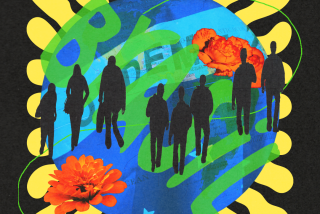The ‘Hispanic paradox’: Latinos and lung cancer
- Share via
Researchers have called it the “Hispanic paradox”: When it comes to breast cancer, prostate cancer and heart disease, Latino patients in the U.S. survive longer after diagnosis than their non-Latino white and black counterparts — even though studies have found they tend to have fewer resources and less access to care than non-Latino whites.
It’s the same for lung cancer, said scientists at the Miller School of Medicine at the University of Miami in a paper published online Monday by the journal Cancer.
Querying a vast database that tracks U.S. cancer cases, the researchers looked at 172,398 patients diagnosed with non-small cell lung cancer, a common subtype of the disease, in the U.S. from 1988 to 2007.
Overall, the 18,206 Latino patients had a 15% lower risk of dying during the study than the non-Latino white patients. Black patients were slightly more likely to die than non-Latino white patients.
The Latino patients were more likely to have less deadly forms of lung cancer than non-Latino whites or blacks — and less likely to have the most aggressive types of the disease. There were no significant differences in mortality between Latino patients who were born in the U.S. and those who were born abroad, the study found.
The University of Miami researchers did not know why Latino patients tended to live longer, but suggested that it might be because they smoke less, or it might have something to do with genetics.
Read more about lung cancer, which is the leading cause of cancer-related death, from the CDC.







